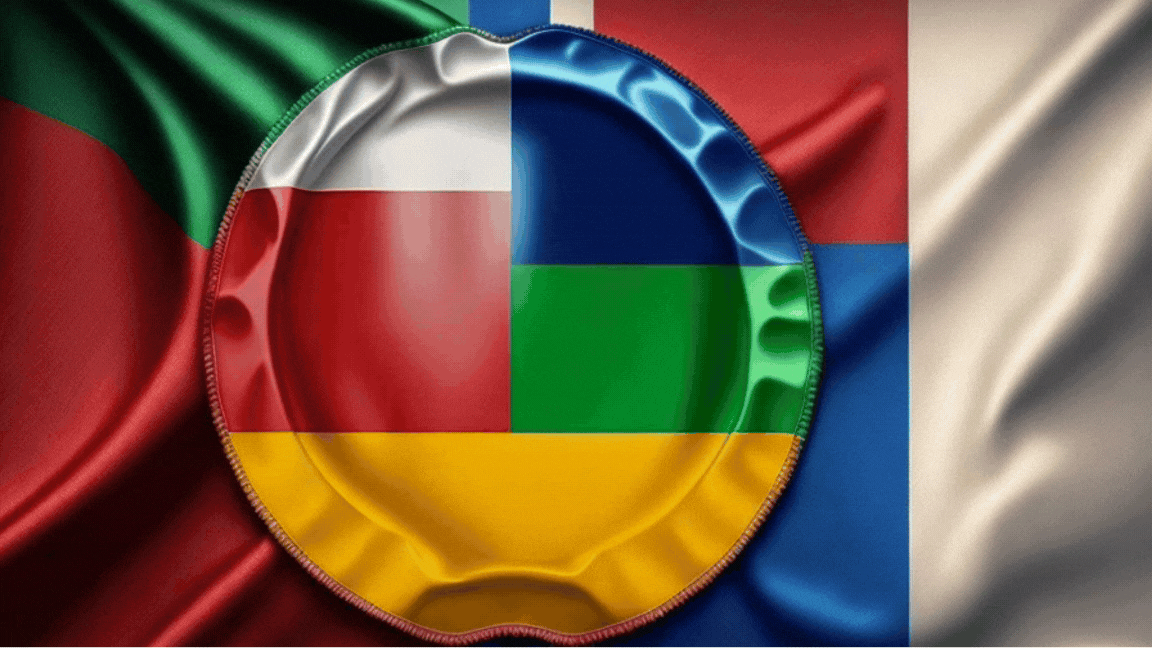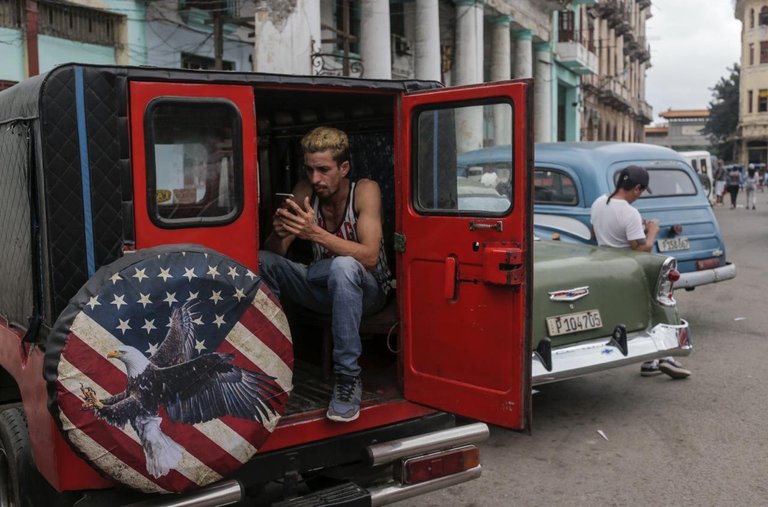
Trump
The US tycoon's first day back in office was extremely hectic, giving plenty to talk about as soon as early as he began his official schedule. We leave to the reader the task of navigating the long list of executive measures adopted so far by the 47th president of the United States, to focus on the main aspects of those directly related to our troubled region. Already in his inaugural address to the nation, Donald Trump left aspects to take into account, given that he no longer speaks as President-elect but as the active owner of the Resolute desk, again. As far as Latin America is concerned Trump's narrative did not change in the slightest. “[We are] taking it back,” he said about the Panama Canal after returning to the narrative that "[the] American ships are being severely overcharged and not treated fairly in any way, shape, or form," and further that China—so in general—runs it. The factual basis for the latter claim is that a Hong Kong-based Chinese consortium operates two ports at the entrances to the interoceanic waterway.
In the reasoning advocated by Republicans, including as expressed by already appointed Secretary of State Marco Rubio at his confirmation hearing, this poses a national security problem because it would give China the ability to close off U.S. vessels during certain critical events, like a war. Rubio said he felt compelled to “suspect” that “an argument could be made” stressing that the terms of the historic agreement ceding canal authority to the Central American country have been violated for this reason. The head of the Panama Canal denies any Chinese interference in its administration and pointed out in an interview with AP a few days ago that there are other ports connected to it operated by U.S. or Taiwanese companies. The Palace of the Herons has also rejected the narrative that there is discrimination in tolls and has ruled out making exceptions—for example, Trump seems to be very sensitive to the allegation that the United States Navy, in particular, is being “very badly treated”. So, one of two things can happen here: either Trump comes off as a blabbermouth or we see Panama making a move to avoid possible economic consequences of this untimely imperialistic whim.
“China is operating the Panama Canal, and we didn’t give it to China. We gave it to Panama, and we’re taking it back," says President Donald Trump during his inaugural address https://t.co/Rn24mMHtrP pic.twitter.com/LGoKM5ayT2
January 20, 2025— Bloomberg TV (@BloombergTV)
Otra definición, esta vez sobre Latinoamérica. Al preguntarle sobre la relación con la región, Trump dijo que "va a ser grandiosa, ellos nos necesitan. Nosotros a ellos, no" pic.twitter.com/4jC276FMe8
January 21, 2025— Nacho Montes de Oca (@nachomdeo)
Cuba
But this Panama thing is still on a rhetorical plane. Among the first executive orders of the past administration revoked by Trump is the one certifying the rescission of Cuba's designation as a State Sponsor of Terrorism, signed by Biden just last week. Above all, this says very little about Havana's negotiating effectiveness, since the Island took the step of releasing certain high-profile prisoners linked to political activism against the government or participants in the massive protests of July 11, 2021. Then, although this measure is presented as the result of negotiations with Rome, it is clear that it obeyed a White House-blessed quid pro quo-type deal to take Cuba off the list, in any case, an act of justice when we analyze the issue from an objective approach unburdened of all partiality and hollow rhetoric.
Anyway, the island had not obtained anything important—from a practical point of view—with the never-landed rescission, because most of the sanctions associated with being on the State Sponsors of Terrorism List are covered by the harsh embargo to which the U.S. has subjected it since the triumph of the Fidel Castro's Revolution in 1959. Biden had also removed a prohibition on engaging in direct financial transactions with certain Cuban entities linked to the Cuban security services, primarily the Armed Forces, but this was a measure that had no chance of being enforced by the Trump administration. Were you going to leave it to Marco Rubio the concrete elimination of a list that he not only is not in the mood to remove but that he most certainly wants to—and will—thicken? Biden never wanted to do something good towards Cuba, stupidly fearful of the electoral atmosphere in Florida. But, again, I don't know what Havana was thinking when it gave its blessing to such an appalling act of political negotiation.
 Source
SourceEMERGENCY AT THE SOUTHERN BORDER
“America's sovereignty is under attack,” begins an executive order signed on Monday by Trump declaring a national emergency at the southern border, summoning the U.S. Armed Forces to coordinate with the Department of Homeland Security in response to "the invasion" allegedly caused by the de facto control that different criminal structures—cartels, gangs, or individuals—exert over the border, threatening the stability of U.S. society. Trump appeals to concrete events such as certain murders committed by immigrants—with Venezuela as the main focus—and to the alleged organized presence of gangs like the Venezuela-born Tren de Aragua in states like New York and Texas, which, according to the MAGA narrative, “have begun seizing control of parts of cities, attacking our most vulnerable citizens, and terrorizing Americans beyond the control of local law enforcement.”
NEW: Senate passes Laken Riley Act to crack down on illegal immigration
January 20, 2025— Sahil Kapur (@sahilkapur)
12 Democrats vote YES w/ Republicans.
Bill requires ICE to detain migrants in the US illegally who are charged, arrested or convicted for "burglary, theft, larceny, or shoplifting."https://t.co/geHOvmYpIv
As for the cartels on the Mexican side of the border—there was also executive action in this regard, as promised—, the referred order states that “[they] control vast territories just south of [the] southern border, effectively [deciding] who can and cannot travel to the United States from Mexico”, which, together with the health crisis generated by fentanyl trafficking in particular, has created a context “obligating” the Department of Defense to enter in action and help the DHS to regain “full operational control of the southern border”. This involves the deployment of personnel and resources, the construction of additional psychological barriers, “prioritizing the impedance and denial of the unauthorized physical entry of aliens across the southern border”. In another executive order in the same direction, the Department of Defense is charged with assigning to the United States Northern Command “the mission to seal the borders and maintain the sovereignty, territorial integrity, and security of the United States”, so fighting certain “forms of invasion including unlawful mass migration”, among others.
DOOCY: If the cartels are now gonna be seen as foreign terror organizations, would you think about ordering US special forces into Mexico to take them out?
January 21, 2025— Aaron Rupar (@atrupar)
TRUMP: Could happen pic.twitter.com/QGQcqOc2wK
Finally, for today, I will refer to another executive order by which Trump, alleging “[an] ongoing influx of illegal aliens across the southern border of the United States”, and relying on certain sections of the Immigration and Nationality Act, in practice suspends the physical entry into the United States of aliens allegedly engaged in the so-called "invasion", and even withdraws their right to apply for asylum. This certainly opens up a rich discussion in the legal field. Although the current legislation provides that “[any] alien who is physically present in the United States or who arrives in the United States [.... ], irrespective of such alien's status, may apply for asylum,” the sections invoked by Trump to surpass this provision appear to give him unlimited discretionary power, particularly section 212(f) of the INA, which reads that ”[whenever] the President finds that the entry of any aliens or of any class of aliens into the United States would be detrimental to the interests of the United States, he may by proclamation, and for such period as he shall deem necessary, suspend the entry of all aliens or any class of aliens as immigrants or nonimmigrants, or impose on the entry of aliens any restrictions he may deem to be appropriate”. We have more to review in the second part of this report tomorrow.
And this is all for our report today. I have referenced the sources dynamically in the text, and remember you can learn how and where to follow the LATAM trail news by reading my work here. Have a nice day.


Apreciate the report, than you for writing.
!PIMP !PIZZA !BBH
Posted using Political Hive
Thanks for your big support of my content here in the Hive blockchain. I always try to do my best. Best regards from Havana.
$PIZZA slices delivered:
(1/20) @alohaed tipped @limonta